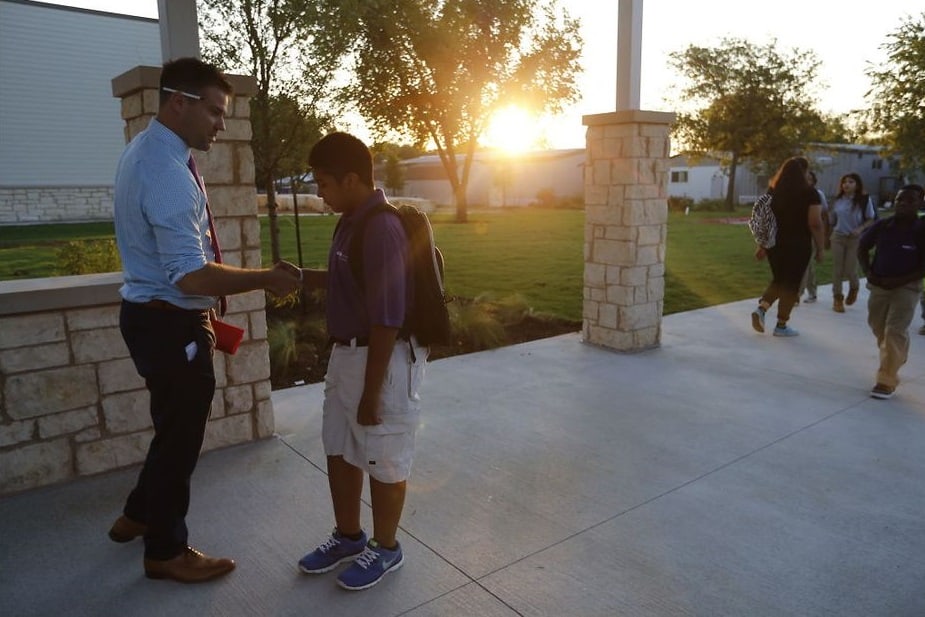
By Mackee Mason, Austin Achieve High School Principal
Last week, a scholar told me, “Mr. Mason, I am in the red, and I need to talk to you.”
As the scholar described a typical high school conflict with another scholar, I recalled a year ago when the same scholar handled a similar situation with swear words and aggressive behavior.

“We will work this out,” I told the scholar. “But I just want to give you a shout-out for your emotional intelligence with this situation.”
The scholar looked confused and said, “Of course. This is how we do it at Austin Achieve,” as if reminding me of our school’s expectations.
This remarkable situation is a product of various strategic measures we have taken at Austin Achieve to increase our scholars’ Emotional Intelligence. Social Emotional Learning (SEL) programs have been gaining traction in schools since the publication of initial research about the positive effects of developed EI in the early 1990s. Recently, a New York Times editorial concluded, “Social and emotional learning programs significantly improve students’ academic performance.” Additional research also shows EI strongly linked to staying in school, avoiding risk behaviors and improving health, happiness and life success.
EI is the ability to use emotions effectively and productively. At Austin Achieve, we believe one’s Emotional Quotient is not fixed, and it can be developed with learnable skills that build self-awareness, self-discipline and empathy.
Our scholars start their day with edMosphere, an app that takes the temperature of their emotions with a series of questions. Teachers can log in, see real-time feedback on the emotional state of the classroom, and adjust if necessary. For example, one teacher noticed that a high number of scholars answered the edMosphere questions with “tired,” so she made small lesson adjustments to include more group work that day. With edMosphere, administrators have a birds-eye view of the scholars’ emotion state and can address misbehavior such as bullying before they become bigger issues.
Austin Achieve has a goal of zero off-campus suspensions, because often it does not fix the problem and it results in lost class time. To that end, Austin Achieve teachers volunteer their conference periods to be available in the hallways should a scholar have a difficult time meeting classroom expectations. Teachers are trained to ask restorative questions such as:
If the scholar reflects and gets back on track, they can reenter the classroom and serve an appropriate consequence later. If there are continuing issues, they spend time with our Restorative Justice coordinator in the Accountability Center, where they dig deep into the behavior cause and effect. Scholars keep up with their classwork while working independently and in group sessions.
Let’s go back to the scholar’s situation that began this post. The scholar used the word “red” in describing emotions. The color-coding is a part of Austin Achieve’s mood measuring and regulation program, which helps scholars self-identify and then regulate their actions.
In that scholar’s case, they identified, approached me for assistance, and we resolved the situation through a Restorative Circle. The RC facilitates a conversation between the involved scholars, where they share and then listen to how their actions affected others. Instead of focusing on intent, the RC aims to decrease fear of consequence and open the door for transparency.
We are not perfect, but we know that if we continue to implement best-practice strategies to increase our scholars EQ, while providing a rigorous education, the possibilities for our scholars are endless.
Mackee Mason is a former Teach For America corps member and has led two public charter schools to ambitious academic results, including a second place ranking out of 40 comparable Texas schools.